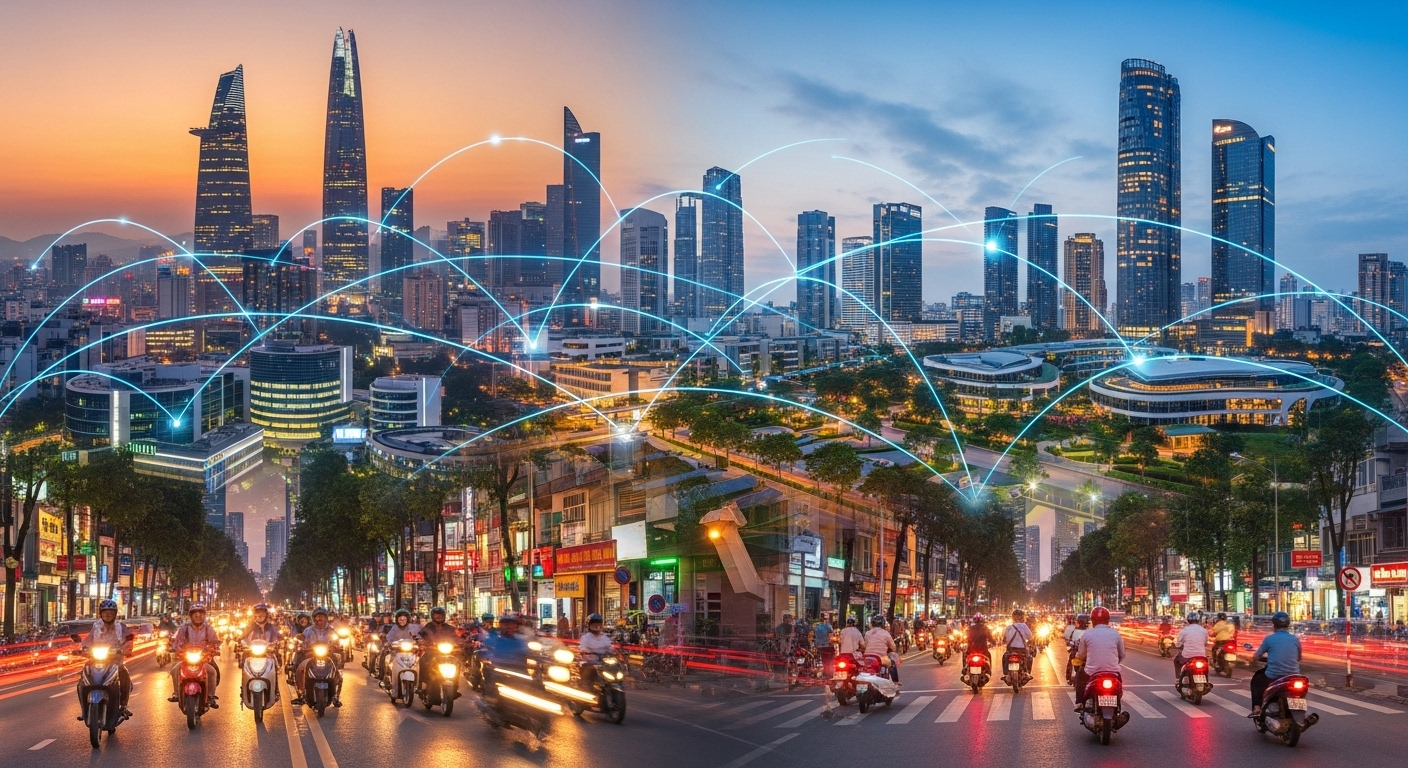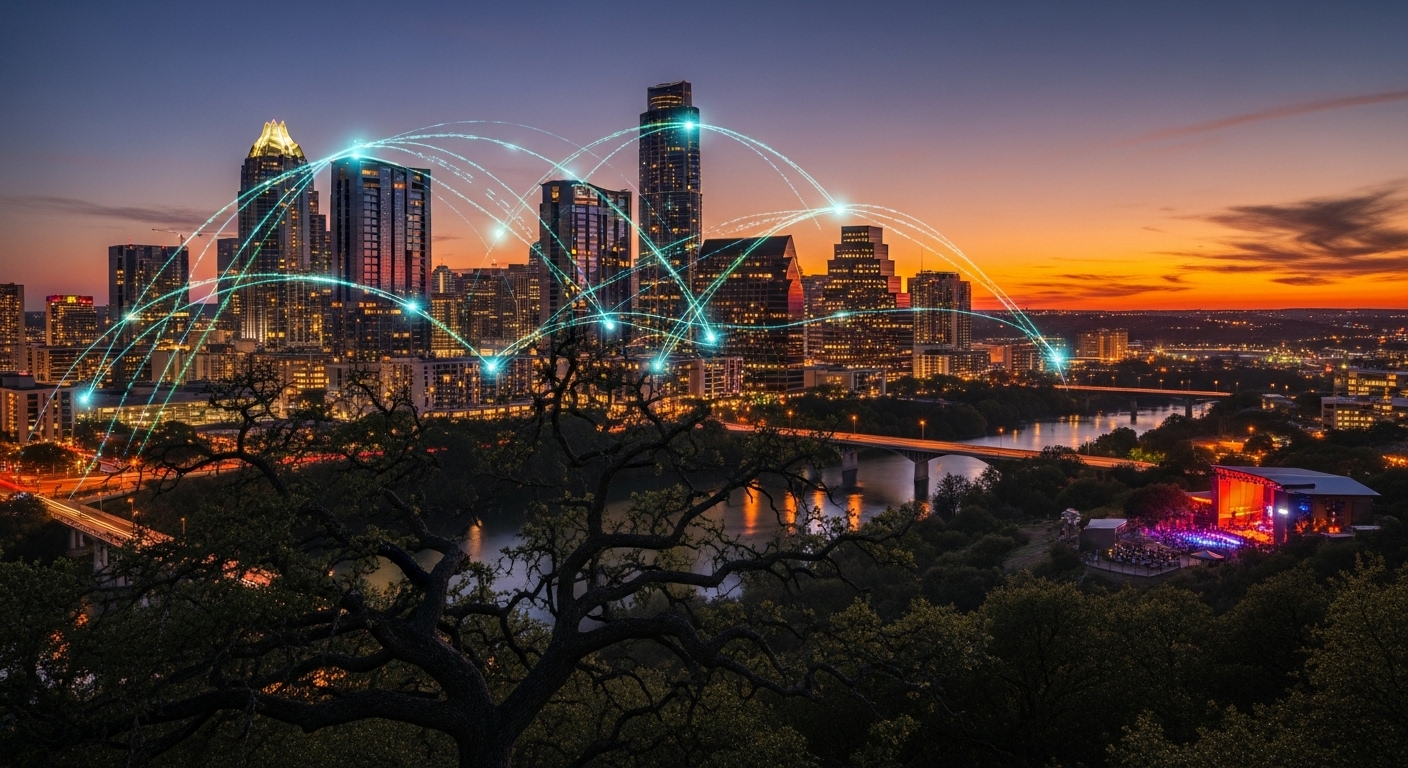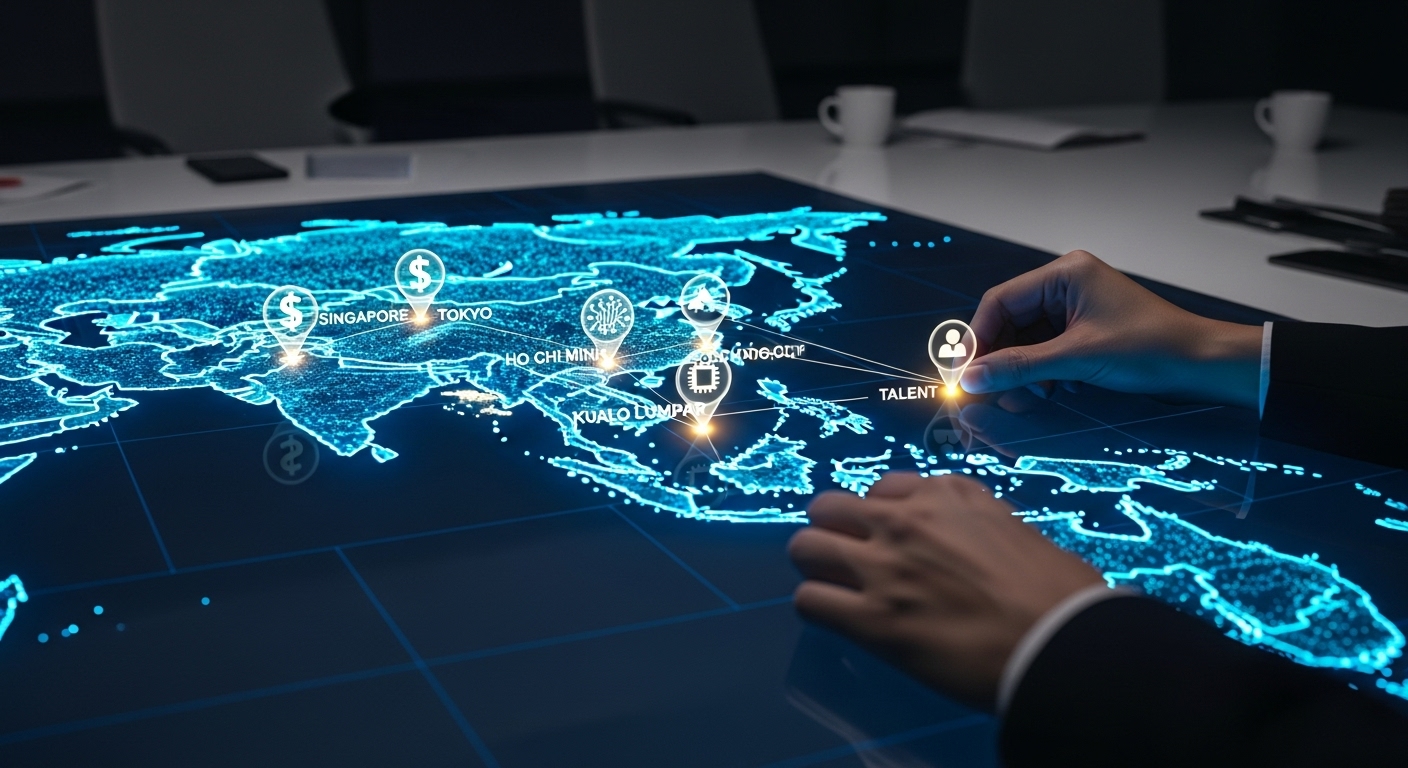The traditional map of business in the Asia-Pacific region was once simple, dominated by a handful of titans like Tokyo, Singapore, and Hong Kong. However, a seismic shift is underway, driven by digital transformation, evolving supply chains, and a new generation of talent. Today, the APAC landscape is a complex and vibrant mosaic of specialized hubs, each cultivating a unique ecosystem of innovation and opportunity. For global leaders, looking beyond the established giants is no longer an option—it is a strategic imperative. This guide delves into the rise of these emerging specialist centers, exploring what fuels their growth and how businesses can strategically engage with them for a resilient and diversified regional footprint. We will journey through the new centers of gravity in technology, manufacturing, and the digital economy, offering a fresh perspective on where the future of Asia-Pacific commerce is being forged.
Redefining the ‘hub’: from mega-capitals to specialized centers
The concept of a ‘business hub’ in Asia-Pacific is undergoing a fundamental transformation. Historically, the title was reserved for sprawling financial capitals that served as gateways to the entire region. These mega-hubs offered a concentration of capital, corporate headquarters, and logistical infrastructure. While they remain critically important, their dominance is being challenged by a new breed of city: the specialist hub. These emerging centers are defined not by their sheer size, but by their depth of expertise in specific, high-growth sectors. This specialization creates a powerful flywheel effect, attracting a critical mass of skilled talent, targeted venture capital, and supportive government policies, all focused on nurturing a single industry or cluster of related industries. For instance, a city might become the undisputed leader in biotech research, advanced manufacturing, or fintech solutions for a specific demographic. This shift from a monolithic to a polycentric model offers businesses unprecedented opportunities. Instead of a one-size-fits-all APAC headquarters, companies can now build a distributed network, placing specific functions in the cities that offer the absolute best ecosystem for that particular activity. This ‘hub-and-spoke’ evolution allows for greater operational efficiency, deeper market penetration, and enhanced resilience against regional disruptions.
The criteria for emergence: what catapults a city to hub status
What turns a promising city into a bona fide specialist hub? It’s not a single factor, but a convergence of several key catalysts. First and foremost is a proactive and supportive government. This often manifests as targeted incentives, streamlined regulations for foreign investment, and significant public investment in digital and physical infrastructure. Second is the availability of a deep, specialized talent pool. This is often cultivated through world-class universities with strong STEM programs and policies that attract international experts. Third, a vibrant venture capital and funding ecosystem is non-negotiable. Startups and scale-ups in niche sectors require investors who understand their specific challenges and opportunities. Fourth is robust digital infrastructure, including high-speed internet, data centers, and widespread 5G connectivity, which forms the backbone of any modern, tech-driven economy. Finally, quality of life plays an increasingly crucial role. To attract and retain the world’s best talent, a city must offer a desirable living environment, cultural amenities, and a stable social fabric. It is the synergetic interplay of these elements—policy, people, capital, connectivity, and culture—that provides the launchpad for a city’s ascent into the ranks of a leading specialist hub.
Seoul, South Korea: the nexus of deep tech and cultural exports
Seoul has masterfully leveraged its unique strengths to become a global powerhouse in two distinct yet interconnected domains: deep technology and cultural content. The city’s tech scene is far more than just consumer electronics; it’s a hotbed of innovation in AI, robotics, semiconductors, and biotechnology. Fueled by massive R&D investments from conglomerates like Samsung and SK Hynix, and supported by a world-class university system, Seoul’s ecosystem produces cutting-edge intellectual property. This is complemented by a hyper-competitive startup environment, particularly in areas like AI-driven software solutions and biotech. Simultaneously, the ‘Hallyu’ (Korean Wave) has turned the city into the world’s premier exporter of cultural products, from K-pop and cinema to video games and webtoons. This cultural dominance creates a powerful soft power advantage and provides a unique testbed for new digital platforms and consumer technologies. For global businesses, Seoul offers a dual opportunity: to tap into a highly skilled engineering talent pool for deep tech development and to partner with a creative industry that has its finger on the pulse of global youth culture. The city is a prime example of how technological prowess and creative energy can combine to create an economic force greater than the sum of its parts.
Ho Chi Minh City, Vietnam: Southeast Asia’s manufacturing and e-commerce dynamo
Ho Chi Minh City (HCMC) is rapidly cementing its position as a critical node in global supply chains and a leader in Southeast Asia’s digital commerce revolution. Its strategic location, competitive labor costs, and young, tech-savvy population of nearly 100 million people make it an attractive destination for advanced manufacturing and assembly, particularly for companies diversifying their production away from traditional centers. The Vietnamese government has actively courted foreign investment with favorable policies, leading to the development of state-of-the-art industrial parks and logistics infrastructure. But HCMC is more than just a factory floor. It is the commercial heart of one of the fastest-growing digital economies in the world. E-commerce, fintech, and on-demand delivery services are exploding, driven by high mobile penetration and a rapidly expanding middle class. This has created a fertile ground for startups and has attracted significant international venture capital looking to tap into the country’s consumer market. For businesses, HCMC represents a dual-value proposition: a resilient and cost-effective manufacturing base combined with a dynamic, high-growth market for digital goods and services. It is a city of immense energy and ambition, acting as a gateway to the Mekong region and a bellwether for the future of ASEAN’s economy.
Bengaluru, India: from global back office to innovation engine
Bengaluru, often dubbed the ‘Silicon Valley of India,’ has undergone a remarkable evolution. Its journey began as the world’s premier destination for IT outsourcing and business process management, building a massive foundation of tech talent. Today, that foundation supports a far more sophisticated and innovative ecosystem. The city has transitioned from providing services to creating products, becoming a global hub for software development, R&D, and deep-tech startups. It boasts the highest concentration of engineers in the country and is a magnet for venture capital, with a thriving startup culture that rivals many Western cities. Sectors like enterprise software (SaaS), fintech, ed-tech, and health-tech are particularly strong, with numerous homegrown companies achieving ‘unicorn’ status. Furthermore, global tech giants have established massive R&D centers in Bengaluru to tap into its world-class talent pool for their most complex engineering challenges. The city’s ecosystem is a testament to the power of compounding expertise, where a critical mass of talent and capital continually attracts more of the same. For companies looking to build, scale, or innovate in software and technology, Bengaluru is not just an option in Asia; it is a globally essential destination for high-end R&D and product engineering.
Jakarta, Indonesia: navigating the digital economy of a rising archipelago
Jakarta stands as the epicenter of one of the world’s most unique and compelling digital markets. As the capital of the fourth most populous country, it commands access to a vast, mobile-first consumer base spread across thousands of islands. This geographic reality has spurred incredible innovation in logistics, digital payments, and e-commerce, leading to the rise of ‘super-apps’ like Gojek and Grab that integrate ride-hailing, food delivery, and financial services into a single platform. The city’s fintech scene is particularly vibrant, as startups race to provide financial inclusion for a large unbanked and underbanked population. Indonesia’s digital economy is projected to be one of the largest in Southeast Asia, and Jakarta is its undeniable engine room. The city is a bustling hub of startup incubators, venture capital firms, and the regional headquarters for international tech companies aiming to capture this market. Navigating Jakarta requires a deep understanding of hyperlocal consumer behavior and logistical complexities, but the rewards are immense. It offers a glimpse into the future of the mobile-first internet, making it a critical hub for any company focused on consumer tech, fintech, and the platform economy in the developing world.
Conclusion
The economic geography of the Asia-Pacific region is becoming increasingly decentralized and specialized. The era of relying on a single, monolithic headquarters to manage a diverse and dynamic continent is over. The rise of specialist hubs like Seoul, Ho Chi Minh City, Bengaluru, and Jakarta highlights a new strategic paradigm: building a networked presence that leverages the unique strengths of each location. Seoul offers deep tech and cultural currency; Ho Chi Minh City provides a gateway to manufacturing and a vibrant consumer market; Bengaluru is an unmatched engine for software innovation; and Jakarta is the key to unlocking a massive mobile-first economy. For global strategists, the key is to move beyond the traditional map and embrace this polycentric reality. Success in the new APAC requires a nuanced understanding of these emerging ecosystems and the agility to build a distributed footprint. By placing the right teams and functions in the right hubs, businesses can not only optimize their operations but also foster deeper innovation and gain a more resilient foothold in the world’s most dynamic economic region. The future of global growth is being written in these rising cities, and the time to engage with them is now.





